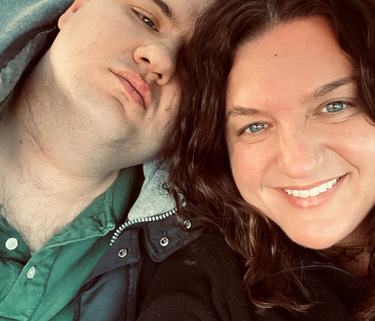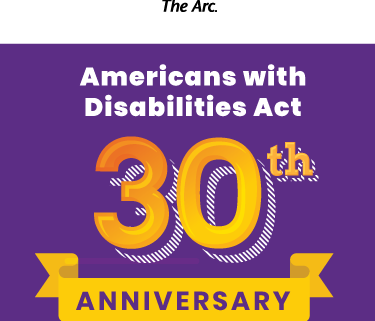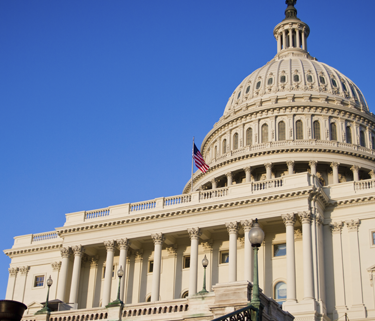 What is happening in Oklahoma?
What is happening in Oklahoma?
Oklahoma is proposing to be the first state to implement a block grant or per capita cap based on the Center for Medicaid Services’ (CMS) recent guidance. The state planned to expand Medicaid by submitting a proposal to CMS, however the State legislature has not funded the expansion. There is a vote in Oklahoma on June 30 on whether or not to expand Medicaid so the state process is unclear. However, CMS is considering their proposal and is accepting comments on its contents. No matter what happens in the state, CMS will make a decision on whether to approve the state’s block grant/per capita cap proposal following the comment period that closes June 27.
TAKE ACTION NOW to tell the federal government: No cuts to Medicaid in Oklahoma or anywhere!
Why should advocates be concerned?
One in five people rely on Medicaid for health care. Over 10 million people with disabilities rely on it for health care services and to live independently. Additionally, Medicaid is critical to fighting the impacts of the global health pandemic. As a result of the pandemic, states will face budget crises, leaving Medicaid in great peril during a time when Medicaid should be strengthened to help more people access health care.
Instead, CMS’ guidance and Oklahoma’s proposal represent a drastic restructuring of Medicaid financing that would weaken the program. If approved, CMS would be allowing a per capita cap, a permanent restructuring of the Medicaid program in Oklahoma.
Approval of the waiver would set a dangerous precedent by allowing a potentially unlawful financing system to move forward that could cause great harm to people with disabilities and chronic health conditions. If approved, other states would be interested in advancing similar plans that would cut or cap Medicaid funding and reduce access to health care.
Approval of the waiver also signals to other states that they could similarly submit incomplete and vague proposals that do not fully explain how the state would operationalize the waiver including definitions, processes, and explanations. The lack of information makes it impossible to fully analyze the impact on people with disabilities, families, service providers and other interested stakeholders.
Oklahoma’s proposed waiver includes work requirements, increased premiums, and other harmful provisions that would reduce coverage and access to care. The proposal contains many of the same proposals that the courts have repeatedly found illegal since 2018. Below is a brief description of the harmful provisions of the Oklahoma waiver proposal.
Work Requirements
Oklahoma’s proposed plan would require enrollees to complete at least 80 hours of work or work-related activities per month to maintain Medicaid coverage. Enrollees who do not complete and report their work hours monthly would lose their coverage. In addition, individuals who fail to complete work requirements could not re-enroll in the Medicaid program unless they complete the work requirements or met one of the stated exemptions, meaning many people would not be able to re-enroll.
The proposal includes an exemption for people with disabilities but does not provide information about how the state plans to implement the exemption process or what the person would need to do to claim the exemption.
Per-Capita Caps
The waiver proposal provides almost no information about the funding overhaul the State seeks. The proposal does not explain how the transformation will affect stakeholders from enrollees to health care providers. There is an no explanation of what happens if Medicaid spending exceeds the federal caps and states must make up the difference.
Regardless of the lack of details, Oklahoma’s request for a per capita cap is potentially harmful. The Social Security Act constrains what provisions of the Medicaid Act states can seek to waive.1 It only permits waivers of sections of the Medicaid Act included in 42 U.S.C. § 1396a. Medicaid’s funding mechanism is not included in this section. Thus, the very structure of the Social Security Act makes it very clear that Congress did not grant CMS the authority to authorize a per capita cap or block grant funding.
Non-Emergency Medical Transportation
Oklahoma proposes to exclude coverage of non-emergency medical transportation (NEMT) for the Medicaid expansion population. NEMT is essential for many individuals enrolled in the Medicaid program including people with disabilities and chronic health conditions. Transportation barriers pose a significant problem for many low-income individuals and families to access care to maintain function and manage health conditions. While the state assures that exemptions can be made based on an individualized assessment, it creates a barrier to accessing this critical service.
Prescription Drug Coverage
Oklahoma reserves the right to limit the list of preferred drugs and medications in the future and asks for flexibility to make future changes. The waiver proposal did not explain what process it would use to make changes, gather input from stakeholders or protect access to necessary medications.
Premiums
Oklahoma proposes to impose premiums on Medicaid enrollees in the expansion population. Individuals with household income that falls d below 100% of the Federal Poverty Level (FPL) would pay $5 every month ($7.50 for families). Individuals with household income from 100-133% FPL would pay $10 a month. ($15 for families). Coverage would not begin until an individual has paid the first premium. Individuals who successfully enroll in coverage but fail to pay subsequent premiums will lose their Medicaid coverage after a ninety-day grace period.
Heightened Copayments for Non-Emergency Use of the Emergency Room
Oklahoma also proposes to implement copayments for various types of health services, including non-emergency use of the Emergency Department. Initially, this would be $8. The state wants to be able to increase the copay in the future. Charging individuals a heightened copay for use of the emergency department is not permissible under the Medicaid statute.
Retroactive Coverage
Oklahoma proposes eliminating retroactive coverage for enrollees in the Medicaid expansion population. This would likely result in medical bills that would be difficult for beneficiaries to afford. Retroactive coverage also helps ensure the financial stability of health care providers and reduces uncompensated hospital care.
Early and Periodic Screening, Diagnostic and Treatment Program (EPSDT)
Oklahoma proposes to eliminate EPSDT services for nineteen and twenty year olds in the expansion population. Congress included EPSDT in the Medicaid program to provide comprehensive coverage of screening, diagnosis and treatment for individuals under the age of 21.
Please join The Arc for a live webinar on Monday, June 22 at 4:00 p.m. ET.
“Protect Medicaid: Learn More About Why the Oklahoma Waiver Proposal Is a Threat”
Register Here













